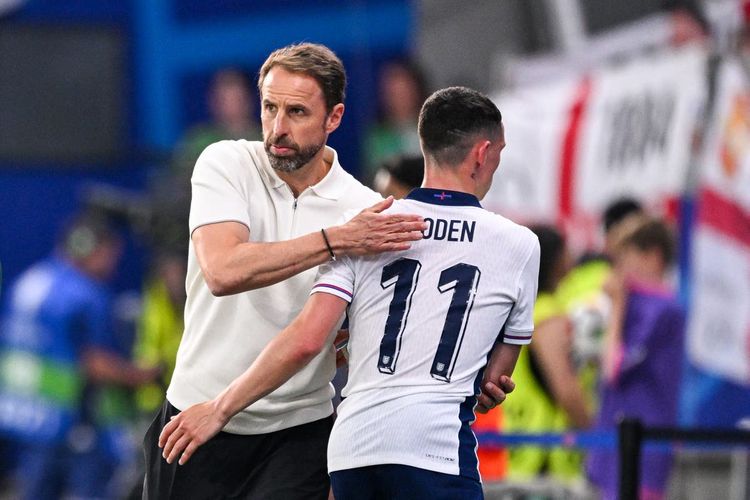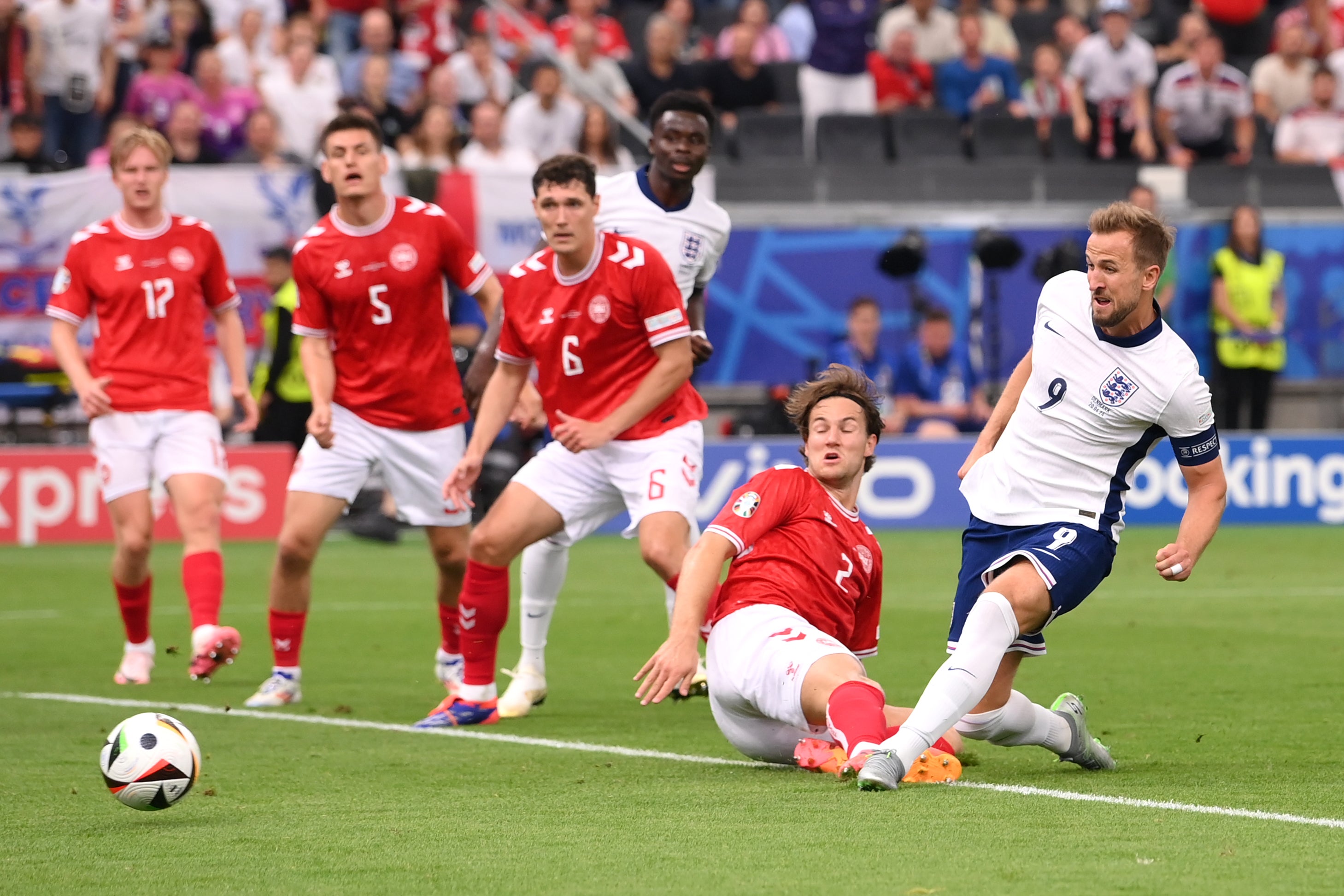Gareth Southgate must make hard choices after England struggle to draw with Denmark

Get Miguel Delaney's Reading The Game Newsletter For Free
Join Miguel Delaney's Free Newsletter
Gareth Southgate told his players to not listen to criticism, but after their 1-1 draw in Erfurt, he may need to keep them away from it completely. This result was more than just a missed win - it raised serious doubts about England's chances in the tournament. The team is not functioning well at all. Despite having four points and being in a good position to finish at the top of their group, Southgate seems to have made the team perform below their potential.

The main issue lies in the midfield, which has been a consistent problem for a while now. The real worry is how Southgate has made it worse. Why continue with the Trent Alexander-Arnold test when it clearly failed? Why leave him in at halftime, only to substitute him shortly after?
Southgate unexpectedly made a bold decision by substituting all three forwards, Bukayo Saka, Phil Foden, and even the goal scorer Harry Kane, after showing hesitancy initially.
There could still be similarities to Graham Taylor's decision to substitute Gary Lineker in Euro '92, depending on how this competition unfolds. Significant changes are necessary. Southgate will have to make more daring decisions and not worry about excluding some star players. It is vital to have a cohesive team rather than relying on individual names.
What made the decision to bench the main players so important was that it showed a realization that the team's preparation for the tournament was not successful. Coaches typically don't make drastic changes like that because it disrupts the team's strategic plan. This begs the question, what exactly is the team's strategic plan?

Southgate was gesturing towards his head after Denmark missed another last-minute opportunity, urging his players to focus. He has a lot of pondering to do.
On the contrary, the Danish team must think about the missed chance they had. They had a great opportunity to win the game, as they were clearly better, particularly in their fundamental organization.
Even England's objective demonstrated that in its unique manner.
Denmark seemed to be dominating the game, causing Victor Kristiansen to become careless. However, Kyle Walker's quick thinking should not be overlooked. Despite Kristiansen's slow movements, Walker managed to steal the ball from him near the box. The right-back then made a strong push forward to pass the ball back to Kane. After a bounce, the ball reached Kane, allowing him to score his first goal of the tournament in an effortless manner.
England found it tough during the game against Denmark. The task became more difficult for them. They ended up falling back as they usually do, while the Danish team seemed to gain momentum. Despite having supposedly weaker players, Denmark appeared stronger. This highlighted England's reliance on responding to and thwarting Kasper Hjulmand's tactics. Southgate's team was focused on exploiting the weaknesses in Denmark's setup, but those opportunities were diminishing.

In the blog, they mention a noticeable difference in the playing styles of England and Denmark. Denmark's midfielders worked closely together in tight groups, while England's midfielders had more space between them. It seemed like the Danish players always had a short passing option nearby, while England's players could be spread out more throughout the field.
Denmark had been building up momentum for a while, and it seemed like Southgate had been forewarned. Morten Hjulmand unleashed a powerful shot that narrowly missed Jordan Pickford's right post. The goal was well-earned by Denmark.
Southgate decided to make a change and surprisingly, he let the midfield experiment continue for another eight minutes before bringing on Conor Gallagher to replace Alexander-Arnold.
One thing people are wondering is why he didn't switch things up at halftime. But what's even more puzzling is why he kept using the same formation, especially after seeing how it didn't work well in the Serbia game.

Gallagher's initial action was very important. He kicked the ball away to prevent Denmark from scoring a goal just a few yards away.
Even though Foden had come close to scoring again by hitting the post, England's gameplay still lacked coherence.
Southgate then made his most daring decision yet and substituted his entire forward line.
Despite appearing desperate, there was still some reasoning behind the decisions. Ollie Watkins provided runs in behind the defense that Harry Kane was unable to do. Jarrod Bowen was able to deliver crosses and make quick breaks. Eberechi Eze brought more direct dribbling ability and was able to take long shots.
Any of them could have potentially taken action, but ultimately it was the situation that England found themselves in.
It appeared tiny and unimportant when compared to the actions of a powerhouse team like Germany.
In the past, people who quickly dismiss a team struggling in the group stage have been proven wrong by football history. England still lead the group with four points.

It is undeniable that England is in need of major improvements in almost every aspect. One of the few bright spots was Marc Guehi. It shows that England is relying on the performances of young substitutes.
England showed no signs of becoming champions. They appeared to struggle to work together as a team.











































